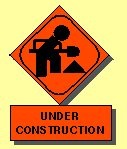
| This is a Motion to OPM, 25 November 1983, in Continued Opposition to April 1981 Agency Application, Retaliating Against Pletten's Whistleblowing. The retaliation took the form of violations including but not limited to:
The goal was to encourage OPM to continue fighting on my behalf. Area U.S. Attorney staff and federal judges were later corrupted to ignore this evidence. The ex parte-obtained corruption went to the extreme of saying Pletten applied! The record shows he fought continually, and continues to do so, now the year 2001. See also other items in the series, e.g., 21 March 1983, 29 March 1983, 27 July 1983, 10 October 1983, and 2 Jan 1985, as per Pletten's working full-time+ developing every evidence for seeking recognition of his remaining an employee absent a 30 days notice of charges IAW federal law 5 U.S.C. § 7513.(b) warranting removal, and recording his position, for anticipated use in the EEOC forum, which TACOM was claiming would be reviewing the matter. More in the series will be posted as scanned. The volume is enormous, takes some time. |
UNITED STATES OF AMERICA
OFFICE OF PERSONNEL MANAGEMENT
CSA BRIEF
| NOV 25 1983 |
| Pages |
| Motion that OPM Assist in Resolving the Situation Herein | 1
| Request Details | 2
| Enclosure: Analysis of CSC Form 1175 | 4
| |
| Leroy J. Pletten | ) | ||||||||||||||||||
| ) | |||||||||||||||||||
| ) | NOV 25 1983
| ) |
| Department of the Army | ) |
| _______________________ | ___ | ) |
| |
